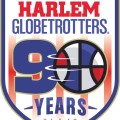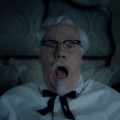By Luis Vazquez
Charles Barkley has always been outspoken. The former NBA superstar has always understood the plight of African-Americans in the United States having grown up in Alabama in the deep South. But in producing his TNT series “American Race” Charles learned first hand as executive producer that the issue of race is not limited to one group.
Through this series he expanded his understanding of what collectively is the “American Race” while absorbing verbal responses from a variety of people that would both challenge and offend him. “It’s a hard show, none of the conversations were pleasant,” Barkley said, “They have to do with some form of discrimination. I needed a beer after every episode.”
The Paley Center for Media in New York City was the site where a roundtable hosted by CNN commentator and former South Carolina State Representative Bakari Sellers, Barkley, and members from different backgrounds, most of which are activists in their fields, on the panel who appear in different episodes of which we were shown three highlights.
The first clip was a response to his idea that cops need more support from the community which garnered heated responses from families of victims of police brutality. We were also made aware of Muslim, Asian, and African-American experiences in the United States.
The theme of this conference were the things we did not know. Korean-American actor Peter Jae Kim, born in New York City, now residing in Los Angeles, spoke about the Rodney King-inspired riots that saw Asian-American business owners caught in the backlash in the second clip.
Korean owners were shown acquiring guns illegally in desperate attempts to keep their businesses from being looted. He also touched on the Chinese Exclusion Act, Japanese internment camps during WWII, among others. He’s of the opinion that Asian Americans accept too much and lack a central leader. “In America, we don’t matter. We are not included in conversation, ” Kim said,
“Media portrays our women as fantasies, men are incompetent fools, illegal immigrants or martial artists who can kick anyone’s ass in the room but lack communications skills.”
Muslim woman, such as activist and restaurant owner Sharmina Zaidi, where one episode took place shows a surprised Barkley watching an entire group of Muslims standing up in the middle of a dinner to pray. She also expounded on how tidy the Muslim experience was until 9-11, when they became convenient targets though many were born here.
“We like to blame other cultures for whitewashing their history, hiding things from people,” said Zaidi. Even Justin Normand, a white man and Dallas sign maker, who worships a religion distinctive from Islam could see the issue clearly.
“It’s all phony. Muslim friends were being held accountable for things they were not doing,” Normand said, “The white male christian voice is missing, oddly silent.”
The most emotional clip was the conversation that occurred between Barkley and white supremacist, Richard Spencer, who boldly stated why he thought white power is diminishing and how the period of slavery for African-Americans was “unfortunate.” Barkley says he was most affected by this episode.
“It was disappointing, frustrating, the most angry that I would ever envision myself in my life,” Barkley said. Atlanta-based civil rights attorney Gerald Riggs linked how that seemingly minority opinion is reflected in today’s political power structure. “He is an afraid little boy who is reaching out for those vestiges of hate.”
Griggs added, “It’s the same philosophy that is flowing from the White House.”
The panel touched on many interesting topics within the race question generating a lot of feedback questions. But probably the most important reason for the dialogue is the fear that issues that cannot see the light of day will invariably implode within America.
“We really do need to have a real conversation about race because the oppressed people are starting to oppress each other,” said Griggs. Barkley’s “American Race” can be seen on TNT.
Comment: Luis Vazqu(@Cyberj2000https://twitter.com/Cyberj2000?s=03

















Follow Us